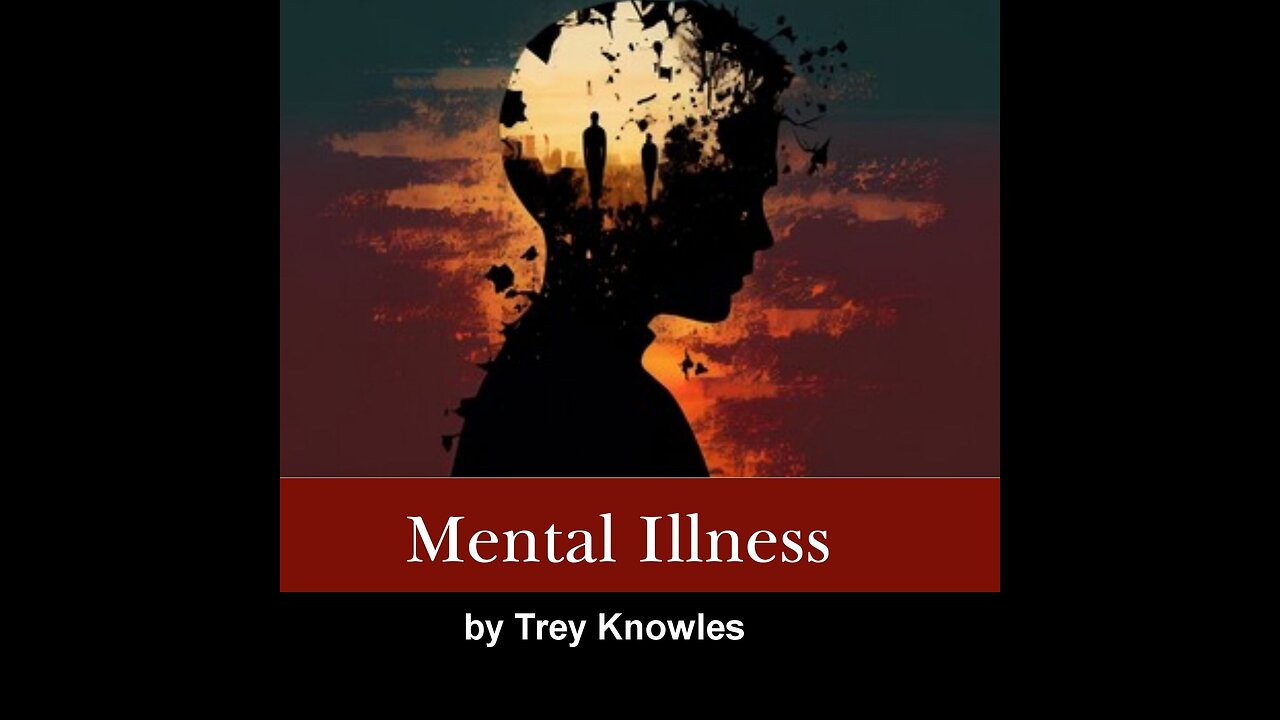Premium Only Content

Trey Knowles - Mental Illness
Mental health stigma refers to negative beliefs that people may hold about those with mental illness. It can lead to stereotypes, prejudice, and discrimination. Stigma often arises from a lack of understanding or fear, perpetuated by inaccurate media representations of mental health conditions.
There are different types of stigma: Public stigma: This involves negative or discriminatory attitudes that others may have about mental illness.
Self-stigma: Refers to the negative attitudes, including internalized shame, that people with mental illness may have about their condition.
Structural stigma: More systemic, involving policies that unintentionally limit opportunities for people with mental illness, such as lower funding for research or fewer mental health services relative to other healthcare.
Stigma not only affects individuals with mental illness but also their loved ones. It can be a significant barrier to accessing mental health services, especially in diverse racial and ethnic communities. For example, cultural values and distrust of the mental healthcare system can hinder seeking help. Let’s continue to raise awareness and promote understanding to reduce mental health stigma.
Trey Knowles song Mental Illness lets people know it’s ok to talk about Mental Illness and how they don’t have to be ashamed of themselves or their condition.
When individuals experience mental illness stigma, it can have profound effects on their well-being and quality of life. Here are some common ways in which stigma impacts people:
Self-Isolation: Stigma often leads individuals to withdraw from social interactions. They may fear judgment or discrimination, causing them to avoid seeking help or sharing their experiences.
Delayed Treatment: Due to stigma, people may delay seeking professional help for mental health conditions. This delay can worsen symptoms and hinder recovery.
Reduced Self-Esteem: Negative stereotypes can erode self-esteem and self-worth. Individuals may internalize these beliefs, feeling ashamed or inadequate.
Barriers to Employment and Education: Stigma can affect employment opportunities and educational attainment. Discrimination in the workplace or educational settings may limit career growth and personal development.
Lack of Support: Stigmatized individuals may struggle to find a supportive network. Friends and family may distance themselves due to misconceptions about mental illness.
Impact on Relationships: Stigma can strain relationships. Partners, friends, and family members may not understand the challenges faced by someone with a mental health condition.
Underreporting and Misdiagnosis: Fear of judgment may lead to underreporting of symptoms or misrepresentation during clinical assessments. This can affect accurate diagnosis and treatment planning.
Media Influence: Media portrayal of mental illness can perpetuate stereotypes. Sensationalized stories or inaccurate depictions contribute to stigma.
Internalized Stigma: Individuals may internalize negative beliefs, leading to feelings of shame, guilt, or hopelessness.
Reduced Quality of Life: Overall, mental illness stigma diminishes the quality of life by limiting opportunities, hindering social connections, and affecting emotional well-being.
Let’s continue to raise awareness, challenge stereotypes, and promote empathy and understanding.
Mental Illness
by Trey Knowles
-
 1:20:23
1:20:23
Josh Pate's College Football Show
9 hours ago $7.40 earnedCFP Prediction Special: OhioSt vs Oregon | UGA vs Notre Dame | Texas vs ASU | Boise vs PennSt
44.6K2 -
 LIVE
LIVE
Scottish Viking Gaming
7 hours ago💚Rumble :|: SUNDAY FUNDAY :|: Virginia has two Verginers, Change my Mind!
477 watching -
 1:49:50
1:49:50
Winston Marshall
2 days agoThe DARK Reality of Socialism - Historian Giles Udy
48.8K74 -
 1:09:28
1:09:28
Sports Wars
5 hours agoBengals STAY ALIVE In OT Thriller, ESPN's Ryan Clark SLAMMED, NFL DESTROYS NBA On Christmas
38K4 -
 9:37
9:37
EvenOut
23 hours ago $3.81 earnedThe Non-Reflecting Mirror Scare Twin Prank!
35.6K4 -
 11:19
11:19
Tundra Tactical
22 hours ago $5.60 earnedI Saw How CMMG Makes Guns.
50.7K7 -
 15:34
15:34
Misha Petrov
18 hours agoReacting To TikTok’s Most DELUSIONAL Takes!
67.5K32 -
 1:52:24
1:52:24
Squaring The Circle, A Randall Carlson Podcast
1 day ago#032 Flournoy Holmes' Artwork Helped Define The Southern Rock Phenomenon of The Early 1970's
47K5 -
 19:56
19:56
inspirePlay
1 day ago $0.80 earnedWalking with Lions & Facing Africa’s Wild Side | Safari Adventure with the Grid Championship Crew!
30.5K1 -
 10:50
10:50
RTT: Guns & Gear
2 days ago $1.79 earnedBudget Friendly Carry 2011: EAA Girsan Brat 2311
28.2K6